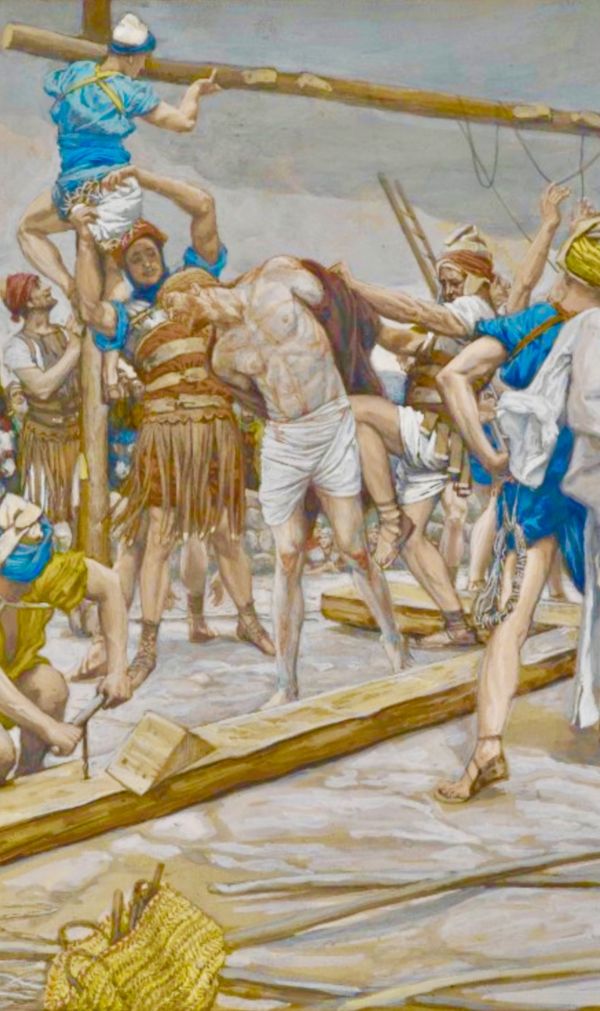(Lk 9:22-25)
Yesterday we underlined how the worm of vanity in the search for the esteem leads to hypocrisy and ostentation.
We ask ourselves: what makes the Father intimate? Carrying the Cross - in the sense of being a devoted and obedient child? Is it necessary to give up living, accepting the various evils?
No, communion with God follows from a freely assumed commitment. That scaffold is not a requirement of the Father who would like to be ‘compensated’ at least by someone.
There are not many ways to choose from, but only two: victory or gift, and every moment is a time of decision.
Templates are no longer needed.
A comparison between the parallel texts in Greek (for example) of Mk 8:34; Mt 10:38; Lk 9:23 and 14:27 [Jn 12:26] makes us understand the meaning of «taking up» or «lifting up the cross» for a disciple who relives Christ and expands him in human history.
God doesn’t give any cross, nor are his sons called to "bear" it or even "offer it"! The Cross must be actively ‘taken’, because the friend of Jesus puts honor at stake.
Its vital wave reaches complete gift also under the profile of public consideration.
After the court sentence, the condemned man had to lift the horizontal arm of the gallows on his shoulders.
It was the most heartbreaking moment, because of maximum loneliness and perception of failure.
Thus the unfortunate and already shamed person had to proceed to the place of the crucifixion by passing between the crowd who, for religious duty, mocked and beat up the wretch, considered cursed by God.
Jesus doesn’t propose the Cross to us in the running sense of a necessary endurance of the inevitable setbacks of life which through asceticism chisels souls more capable of sketching [today we say: ‘resilient’].
Compared to the usual proposals of healthy discipline - external and internal - equal for all and useful only to keep the situation good, the young Rabbi is on the other hand suggesting a much more radical behavior.
The Lord proposes an asceticism totally different from that of religions - even overturned.
The believer must give up ‘reputation’. It’s the essential and decisive starting point of the person of Faith.
Those who are tied to their good names, roles, to the character to be played, to the job description, to the level acquired, will never resemble the Son.
Neither will those who do not expand the tribal dimension of the "family” interest.
From the earliest times, the announcement of the authentic Messiah created divisions: the ‘sword of his Person’ separated the story of each one from the world of values of the clan to which they belong or from the idea of respectability, even national.
The same thing happens today where someone proclaims the Gospel as it is, and attempts to renew the jammed mechanisms of the institutional, customary configuration.
In doing so, taking on the Cross of consequent mockery.
The separation and very clear cut with the criteria of greatness and success is for the new Unity, persecuted: the one that acts as a crossroads of Truth without duplicity.
Trying for believing.
It seems a meaningless dream, but this is what unites the Church to her Lord.
A crucifying path, where one gains what is lost - first of all in consideration.
[Thursday after the Ashes, March 6, 2025]












